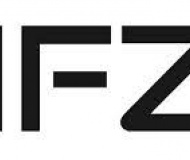Central bank obliges commercial banks in Russia to keep "suspicious" clients under scrutiny
News:
Date added: 20.01.2015Important notice: Law&Trust no longer work in Russia. Transfer of operational control over Law&Trust in Russia to local management and the formation of the LegalCraft brand was started in 2022 and came into effect in October 2024.
In order to minimize the cases of business evasion from payment of taxes, the CB takes active measures. In particular, the controlling structure requires commercial banks to be more attentive to those clients who are engaged in conducting transit transactions. In case of suspicion, the employees of the financial institution are obliged to demand documents proving the payment of taxes from the client.
This decision is caused by the intention of the Central Bank to destroy illegal offshore schemes and stop the withdrawal of capital abroad.
On what grounds banks will identify "suspicious" clients?
A letter signed by the Deputy Chairman of the Central Bank of the Russian Federation was received by all commercial banks. The statement contains a list of characteristic features, according to which the bank will be able to determine conducting of transit transaction almost unmistakably.
- so, for example, standard offshore scheme works as follows: the amount is credited to the client's account from the accounts in Russian banks from a large number of residents, after which money is simply charged off from the account. As a rule, in these cases, no more than two days pass between crediting funds and charging off money. At the same time, such transit transactions are performed daily for a long period of time.
- another feature. Crediting occurs within the scope of this type of activity, which does not oblige the business owner to pay taxes. And payment of mandatory payments from the account is not made.
Taking into account the foregoing features, according to the Central Bank's assessment, it is possible to identify those clients whose activities do not pursue economic and legal goals. The operations of such clients with capital must be under the close scrutiny of the credit institution.
Actions of banks
According to the instruction of the Central Bank of Russia, financial institutions should make a request for the provision of documents by the client that would confirm the fact of payment of taxes for the recent period. At the same time, Rosfinmonitoring should be notified of all suspicious financial transactions. It was noted that about half of all illegal transactions with capital in the Russian Federation are transit operations. According to experts, in 2013 the volume of such transactions amounted to about 1.5 trillion rubles.
The Central Bank's interest in borrowing firms is growing
Credit institutions in Russia are increasingly receiving requests from the regulator to provide detailed information about borrowers. The goal is to identify shell companies.
Top-managers of banks note that the Central Bank has special interest in large borrowers. The bank is obliged to demand statements on personal accounts and accounts of counterparties from the client. Given such requirements, it becomes increasingly difficult for banks to guarantee their clients confidentiality of commercial secrets.
On the part of the Central bank, it is explained that the information received should be used by banks to assess the borrower's solvency.
The Central Bank is acting
It should be noted that, in a relatively short period of time, the Central Bank has already revoked the licenses of two Russian commercial banks, as they conducted doubtful financial transactions for their clients. Also, the reason for the revocation of licenses was the fact that banks did not provide information about operations that, by all grounds, were to be considered suspicious and subject to close monitoring.

















